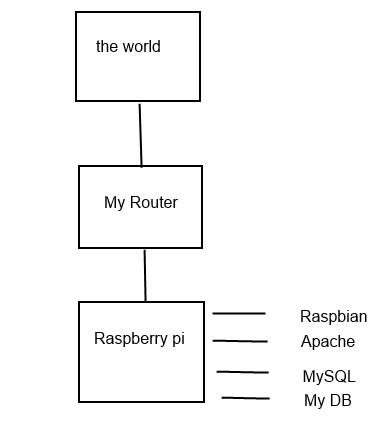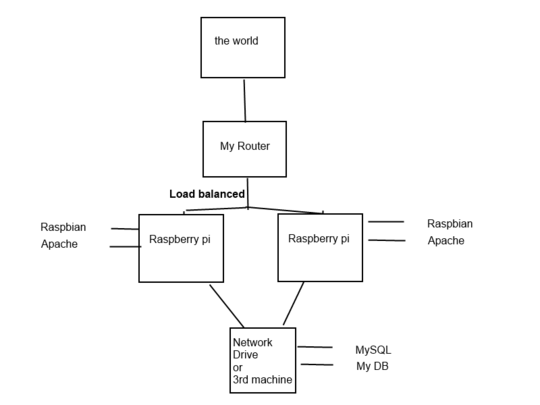1
So I am currently running a web server at my house with a Raspberry Pi. Quite successfully might I add. The only problem is that sometimes the SD card becomes corrupt and my site goes down for an hour or so while I re-image it. I have a nightly backup so its not big deal but I don't want my site to go down at all.
So my solution is that I already have a second pi, why not make dual servers.
The shared database I think I can figure out on my own. The problem I am running into is that I have no idea how to load balance or even direct traffic to multiple servers. Do I need a machine in between my router and servers to direct traffic?
Here is my current setup

And this is what I want

Does it look like I have the correct idea on how to architect this? What am I missing?